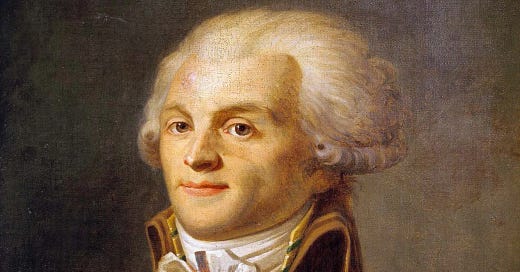"The secret of freedom lies in educating people, whereas the secret of tyranny is in keeping them ignorant."
Maximilien Robespierre
"The secret of freedom lies in educating people, whereas the secret of tyranny is in keeping them ignorant."
Maximilien Robespierre
Maximilien Robespierre, born on July 27, 1758, was a key figure in the French Revolution and a leader of the radical Jacobins. Known for his role during the Reign of Terror, Robespierre sought to establish a republic based on virtue and equality. However, his reign is often remembered for its paradoxical use of violent measures to achieve his ideals, which ultimately led to his downfall and execution in 1794.
The quote, "The secret of freedom lies in educating people, whereas the secret of tyranny is in keeping them ignorant," reflects Robespierre’s belief in the importance of enlightenment and education as foundations for a free and just society. During his time, he saw ignorance as a tool that despotic regimes used to control the masses. Tyranny, in his view, thrived when people lacked the knowledge to recognize their oppression or the intellectual resources to challenge it. By keeping people uneducated, tyrants could ensure that power remained concentrated in the hands of a few, while the majority remained submissive.
Robespierre believed that a well-informed populace was essential for the success of a republic. Education was not only a path to personal empowerment but also a means of fostering collective civic virtue. His vision for the French Republic was one where citizens would be active participants in shaping the government, which could only happen if they were educated enough to understand their rights and the workings of political power.
This idea has far-reaching implications even beyond his time. The quote meaning underscores a timeless truth: knowledge empowers people to think critically, question authority, and demand justice. Tyrants, on the other hand, rely on misinformation, censorship, and the suppression of knowledge to maintain control. The freedom Robespierre speaks of is not merely physical liberation but intellectual freedom—the ability to question, learn, and make informed decisions.
While Robespierre’s own methods during the Reign of Terror contradicted his ideals of freedom, his belief in the transformative power of education remains a powerful lesson. The tension between knowledge and ignorance, freedom and control, continues to be relevant in discussions about democracy, authoritarianism, and the role of education in shaping a free society.




